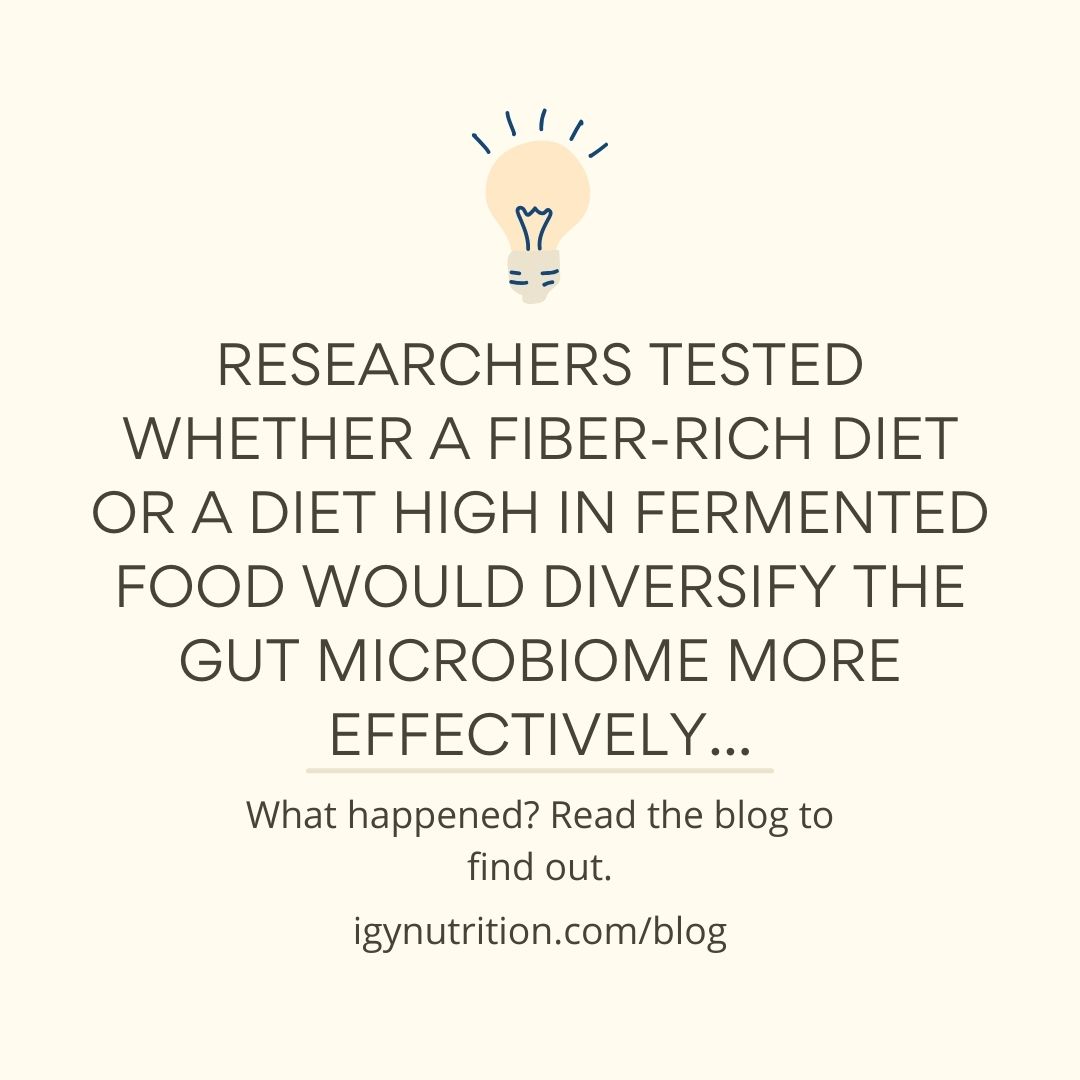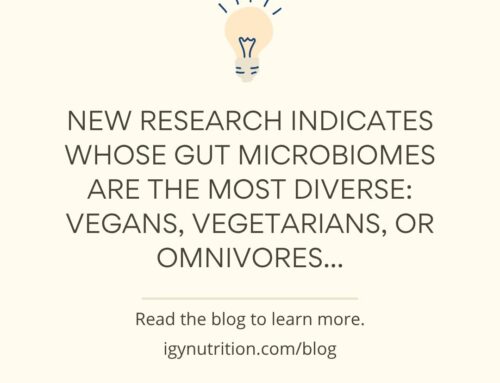Are you looking for ways to diversify your gut microbiome in the new year? Recent research asserts that one of the best things you can do to improve your gut microbiome’s diversity is to consume fermented food regularly. Let’s learn about the science behind fermented foods and how you can make them tasty.
The Evidence
A study by Stanford researchers examined the effects of fiber and fermented foods on the gut microbiome. The study found that both dietary strategies – consuming lots of plant fiber and consuming lots of fermented food – were beneficial in unique ways (Source). However, regarding microbial diversity, eating fermented foods was more beneficial than plain old fiber.
Interestingly, inflammatory proteins decreased in the blood of study participants who ate fermented food. This finding may suggest that the fermented foods’ recomposition of the gut microbiome benefitted their immune systems too.
Fermented Food Recipes
Okay, so you’re on board with consuming fermented foods. But if you’re new to them, you might wonder how to make them taste good! Here are a few ideas.
Kefir Smoothies
Kefir is a fermented version of yogurt. Kefir is chock-full of healthy, living bacteria that propel microbial diversity within our guts. Kefir is particularly helpful in synthesizing vitamins B12 and K. These vitamins play vital roles in digestion and inflammation regulation. Kefir is 99.9% lactose-free, so for those who are lactose intolerant, this makes for a great milk alternative.
Kefir blends well with berries. That’s why this smoothie is delicious!
Ingredients
- 1 cup frozen mixed berries of choice
- Our favorites: blueberries, raspberries, blackberries
- 1 banana
- Frozen is our preference!
- 1 cup kefir
- If picking a flavor, go for berry
- 1 tbsp almond butter
- 1 tbsp chia seeds
Like kefir, kombucha is a fermented beverage. Kombucha is a fizzy black tea with a tangy taste. Similar to yogurt and kefir, it contains plenty of probiotic microbes. Most kombuchas are also high in energy-boosting B vitamins. Kombucha also pairs well with berries. Feel free to substitute kefir for kombucha in this smoothie!
Peanut Tofu
Fermented soybeans – known as tofu – are another tasty choice. Follow the recipe below to spice it up.
Ingredients:
- Marinade
- 2 tbsp sesame oil
- 2 tbsp soy sauce
- 2 tbsp minced garlic
- ½ block tofu cut into small cubes
- Dipping sauce
- ½ cup smooth peanut butter
- 2 tbsp soy sauce
- 2 tbsp sesame oil
- 2 tbsp minced garlic
- 2 tbsp green onion
Instructions:
- Mix the marinade ingredients and put the mixture in a plastic bag. Make sure the tofu is evenly coated.
- Marinate in the fridge for at least 45 minutes (we recommend letting it sit overnight).
- Bake for 1 hour at 400 degrees Fahrenheit.
- While the tofu is baking, mix the dipping sauce ingredients until smooth and even in consistency. You can add water to make it smoother if you’d like.
- Serve with chopped vegetables if desired.
Sauerkraut Sandwich
Does your sandwich need an extra crunch? Look no further.
Ingredients:
- Two slices of sourdough bread
- We recommend crunchy tops
- 5 thick slices of pastrami
- 4 thin slices of tomato
- 4 tbsp brown mustard
- 4 tbsp sauerkraut
Instructions: toast your sourdough bread. Coat each slice with brown or Dijon mustard. Layer ½ of your pastrami on each side. Stack two tomato slices on each side. Finally, place your sauerkraut on a paper towel and pat it until partially dry. Place on top of the tomato, and close the sandwich.
If you aren’t a fan of sauerkraut, you can replace it with pickled onions or regular pickles (make sure they are fermented, though).
Tag us in a photo of your fermented food recipes on Instagram @Igynutrition. Happy snacking!




